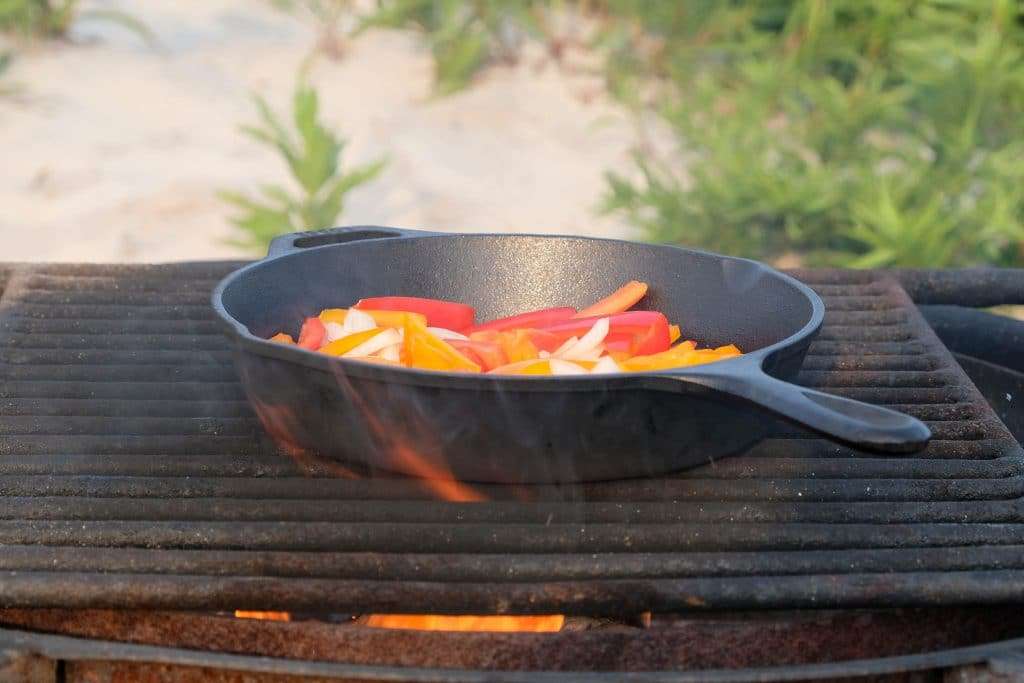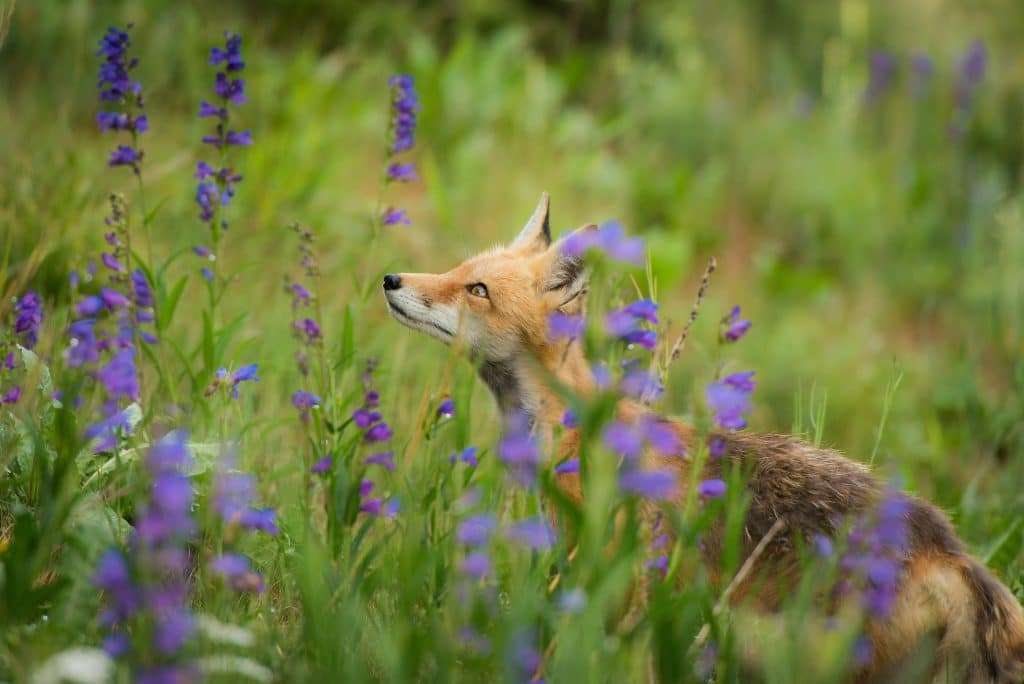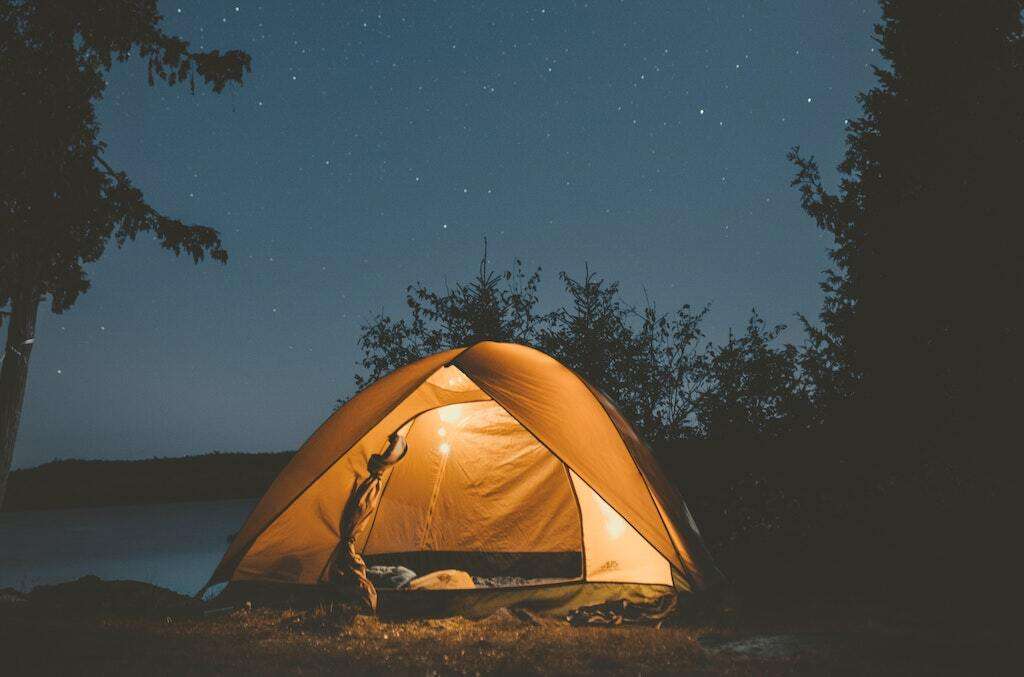Eco camping means decreasing your impact on the environment, and the ‘leave no trace’ principle will help protect nature for years to come.
Becoming eco-friendly means living in a way that is not harmful to the environment. There are always small improvements we could make when it comes to doing our bit for the planet. It is time to think about how we can have less of a negative impact on the planet while we enjoy our vacations—even when camping. Changes don’t have to be big or expensive, they just involve putting a bit more thought before your next camping trip.
Eco camping tips
Here’s how to leave no trace in order to make your next eco camping trip more meaningful.
1. Focus on fuel efficiency
One of the easiest things you can do to make your next camping trip more sustainable is to take the necessary precautions to optimize fuel efficiency. Start by lightening your load, only pack essentials and eliminate any unnecessary weight from your campervan or motorhome.
The weight of your campervan has a big impact on fuel consumption, so you should keep the weight as low as possible to ensure your fuel lasts as long as possible.
Also, be sure to regularly check tire pressure and keep up with your manufacturer’s suggested maintenance schedule. When a tire is not inflated properly it causes the car to work harder to move, meaning it is burning more fuel. By ensuring tire pressure is at the optimum level before traveling you will use less fuel which is kinder on the planet, and your wallet!
2. Prioritize energy efficiency
Just as we try and keep energy consumption down at home by keeping an eye on our smart meters, there are several different ways you can make your camper more energy efficient:

- Swapping your normal light bulbs and lighting strips to LEDs is a great way to save energy. LED’s are a much more sustainable choice of lighting because they use less electricity for the same light output compared to a conventional lightbulb. Put simply LEDs produce less heat and more light, all at a lower cost.
- Ensure your appliances such as microwaves and cookers are the most energy-efficient versions and when not in use, turn off the appliance at the switch.
- Consider other solar-powered equipment for your next camping trip. This could be as small as solar-powered torches or as big as mounting them to your camper. Solar power is a renewable, green source of electricity that is completely free. It not only means you are being more eco-friendly but you can save money and allow you to travel where there may be limited access to electricity. If you want to go full solar power then there are two options, you can mount panels on the roof of your camper or use mobile panels/roll-up solar blankets that you can place wherever necessary to absorb the most sunlight.
3. Be Mindful Of How Much Waste You Produce
Sometimes it’s hard when you’re on the go—and more so in a smaller space, to keep track of all your waste and rubbish. Try and always adopt the ‘leave no trace’ zero-waste principle when moving on from one location to another.
Inspect your surroundings, double-check that you have all of your belongings, and make sure that all your waste has been kept or disposed of properly. Here are some tips to make this easier.
- Bring reusable containers for storing leftovers to ensure no food goes to waste.
- Buy fewer packed supermarket produce items and groceries. This way you will have less packaging to throw away.
- Don’t forget a refillable water bottle so you don’t have to buy lots of plastic water bottles. A lot of campsites end up littered with plastic water bottles, or worse, they end up in the oceans as a lot of people fail to recycle them properly. Having a refillable water bottle will also save you money as you can often refill on campsites or in your campervan.
- Try to eliminate single-use disposable items, like plastic cutlery, cups, and disposable utensils. If it’s necessary to use plastic, remember to recycle those items correctly.
Waste also includes human waste. The most efficient way to dispose of human waste is using an actual toilet whether this is a toilet in a van or the plumbed toilet facilities on a campsite. However, if you don’t have access to these amenities, it’s important to make yourself familiar with ways in which to properly and considerately dispose of human waste in the wild.

Human waste should always be disposed of far away from water (approx 30 meters) and coerced deep in a hole on the ground, away from campsites and trails. With a small garden trowel, dig a hole 6-8 inches deep and 4-6 inches in diameter. The hole should be covered and disguised with natural materials when finished. If camping in a group or in the same place for more than one night, disperse the holes over a wide area.
The same applies to dog waste, campsites may have dog bins for you to use. However, if you are off the beaten track on a hike, then there are several alternatives to leaving it bagged up on the side of the path or hanging on a tree. You can purchase a dog-poo-proof, secure hard-sided container that attaches to your backpack, or alternatively, if your dog wears a pack when you hike, then you can tuck the bag into one of the side pockets so that your dog carries it. Finally, like human waste, dog waste can also be buried, following the same rules.
4. Recycling
Bring separate clear rubbish bags for rubbish and recyclables so you can separate as you go. It also allows for easy sorting at campsite recycling facilities.
Make sure you look out for regulations in the areas you’re traveling through so you know what you can and can’t recycle, as each campsite may be different. Be prepared to take home recycling as not all campsites will have the right facilities.
5. Be considerate of the local wildlife and their habitats
When camping, do your best to respect the wildlife and their surroundings. Don’t interfere with them and always observe from a safe distance. Don’t feed them human food, even if you have leftover food and think it will be going to waste. This will lead to animals becoming reliant on being fed, interfering with their natural foraging behaviors. It may result in animals stealing food from campsites and more seriously, may cause health implications for the animals.

Staying in designated areas is also important when being a more eco-friendly camper. You should resist the temptation to wander off the beaten track and always stay within designated campsites and approved walking paths. Not only do you prevent disrupting the area and causing damage to nature, but you are also protecting yourself from potential danger.
6. Don’t over-forage
Whether it be looking for fresh berries or earthy mushrooms, there are several rules and regulations you must follow:
- Don’t strip a whole location of all its produce, take no more than you plan to consume. Wild food is vital for the survival of wildlife so make sure you leave plenty. Plants and fungi need to produce seeds and spores to grow into the next generation. You may not be the only one foraging so make sure there is enough for wildlife to survive and plants can regenerate and reproduce.
- Make sure you stick to allocated paths so you don’t trample down or damage areas. Not only this when picking leaves or berries, take care to avoid damaging plant roots, uprooting can be harmful to the plants.
- Many species of plants and fungi are endangered and rare, so you should familiarise yourself with any endangered species before foraging. Some species of plants and fungi are protected by law and it is illegal to pick them.
- Always make sure that foraging is allowed in the areas you are going. Consent is required to go onto private land that you do not own. If you are picking plants from land situated away from public rights of way, authorization must be obtained otherwise you will be trespassing on someone else’s land. Foraging is also only allowed for wild plants, stay away from anything that has been planted.
Related on Ethos:


